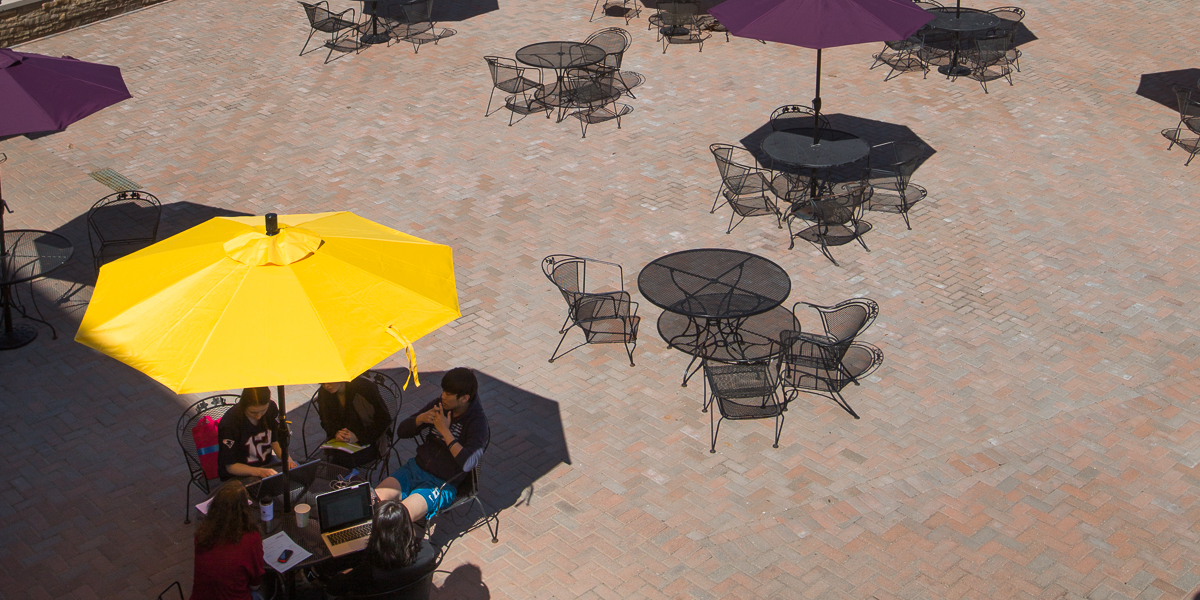

Venture Boldly

Explore other offices & services
Career Success, Bastian Family Center for
College Engagement, Office of Advancement
Community Service, Mark & Jeannette Kleine Center for
Disability Support Services, Office of
Global Studies, Eleanor Stellyes Center for
Government & Community Relations, Office of
Information Technology Services
Institutional Research, Office of
International Student Services, Office of
Knox Advisory Committee on Socially Responsible Investing
Research & Advanced Study, Gerald & Carol Vovis Center for
Student Development, Division of
Student Financial Services, Office of

In addition to reducing waste and sharing resources, it’s important that we properly sort the waste we do have to reduce what we send to the landfill. In 1993, Students for Sustainability (formerly known as KARES) created the first recycling program at Knox. Since then, Knox has developed a robust waste management system that includes recycling (traditional and non-traditional items), composting (through industrial and community-scale systems), and landfill options.
Knox accepts paper, clean plastics #1-5 and #7, paper, cardboard, books, clean aluminum foil and cans, and glass bottles in its blue recycling bins. These blue bins are located throughout campus academic and residential buildings.
Some common items NOT accepted in these blue bins are #6 plastic, plastic bags or plastic wrap, tissues, napkins, wax lined cartons, and plastic or foil-lined food wrappers.
For more information, please refer to 3-way waste system signage around campus, or to these resources:
In additional to traditional recycling, Knox is constantly exploring outlets for hard-to-recycle items. These non-traditional recycling items contain materials that use specialized processes to break down or require special disposal techniques. Knox collects these non-traditional items in special non-traditional collection bins, located in almost every building.
For more information on what materials are accepted in the non-traditional recycling bins, which is often changing, refer to the signage on the bins or this document: Non-Traditional Recycling: items and locations.
If you have a large amount of recyclable materials, that exceed the size of the collection bins, please contact the warehouse for traditional materials and the Office of Sustainability if they are non-traditional materials.
If any of these bins are missing or overflowing with materials, please let the Office of Sustainability know by contacting sustainability@knox.edu.
Composting is the process of allowing organic waste, such as leaves and food scraps, to break down and decompose. Knox has two different composting systems, which allow Knox to divert a lot of food scraps from the landfill, reduce our carbon footprint, and contribute to the production of healthier soils.